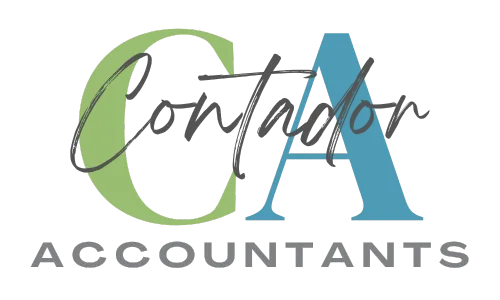Your business budget is like a roadmap that helps you to reach your business goals. With any journey, it’s important to know how fast you should go to reach your destination, when you need to refuel, and how much luggage you could take so as not to overload the vehicle.
When you have a comprehensive business budget, you’ll know how much money you have, how much you can spend, and how much income you need to generate to make the profit and grow the business the way you want to. You can spot looming problems before they become real and plan for unexpected expenses. It’s also easier to chase projected sales volumes and keep to cost savings when you’ve committed to them on paper.
But knowing that you should have a budget, and actually compiling one that is achievable and complete is another thing. Let’s have a look at the components of a budget, and how to come up with reasonable estimates of future transactions.
Components of a Business Budget
There are three major components of every budget: your revenue, your costs, and your profit.
Your budget should contain a detailed breakdown of each type of income and cost for every month.
A budget should be drafted at least once a year, and as the year progresses, you should compare actuals with budgeted figures. You should analyse any discrepancies and tweak future months with new information.
Estimated Income
Your income includes revenue from product sales or services performed, as well as other income like the interest that you charge clients on late payments. Your income estimate should be as precise as possible, as this affects how much you can spend during the year. Rather be conservative and underestimate your sales figures, than being too optimistic and then struggling to reach your sales goals and covering your expenses.
Keep the following points in mind when estimating your revenue:
- If you’ve been in business for a while, last year’s actual sales are a good starting point.
- If you’ve adjusted your prices or you’re planning an increase during the year, take that into consideration.
- If you’ve recently signed up new clients, you have possible new contracts in process, or you’ve employed an additional sales rep, adjust your revenue accordingly.
- If you’ve lost any clients or income streams, you may want to decrease your sales estimate.
- Also take external factors into account, like a recession or a new competitor that has opened up or closed down.
- If you’re just starting out and you don’t have any historical figures to work with, drawing up a budget becomes tricky. You can base your estimates on market research and competitor analysis that you’ve done. But be realistic when coming up with these numbers. Do you have enough resources (time and money) to reach your sales goals?
Estimated Expenses
Your expenses include fixed, variable, semi-variable, and other ad-hoc outflows. When drawing up your budget, be conservative and rather overestimate your expenses.
It’s easy to overlook expenses, so make sure that you inspect your prior year’s financials and go through your bank statements to make sure you pick up every outflow. Also, get your staff involved as they may think of an expense that you’ve missed. If your business is new and you don’t have historical data to work from, talk to others with experience in your industry and get your accountant involved.
These are the different types of expenses to take into account:
- Fixed: Your fixed expenses are those costs that you pay every month and that stays consistent. These include things like rent and insurance.
- Variable: Variable costs are those expenses that are dependent on sales volumes. These include raw material, freight, and direct labour costs.
- Semi-variable: Semi-variable costs are those expenses that stay fairly constant, but the volume of business can affect. These include things like admin salaries, internet costs, and advertising.
Keep the following points in mind when estimating your expenses:
- If you’ve been in business for a while, your prior year figures are a good starting point.
- Adjust expenses for inflation and expected price increases.
- You can also request quotes from various suppliers to confirm prices if you haven’t done so already.
- Also take external factors into account, like a recession or increased tax rates that will affect supplier prices.
Other Outflows
Other costs include purchases that you don’t have to pay for every month or even every year, and include payments that you plan for, as well as unexpected costs.
Unplanned costs include breakages, losses due to power outages, and losses due to fluctuations in foreign exchange, where applicable. These are not something that you really want to plan for, but it’s important that you add an estimate to your budget so that you know should disaster strike, you’re prepared. If you’ve been in business for a while, calculate an average of unexpected costs over the past few years as a starting point, but always add a little bit more. If your business is new, talk to industry experts as well as your accountants.
Planned costs include purchases or upgrades to assets, staff bonuses, relocation, and research and development. Do this part last. How high your expected profits are will determine whether you can afford these outlays or not, and also when the best time is to invest in them. These are usually easy to estimate as you can request quotes from suppliers, or you can set a limit on what you’re willing to spend on it.
Ready to Compile Your Business Budget?
Remember that a budget is an estimate – you’ll never get it 100% correct.
It’s important that you track actuals and compare it with your budgeted figures each month. As things change during the year, adjust your budget for future periods, like when you’ve signed up a major new customer or when suppliers have increased their prices.
Do not rush when compiling your initial budget; you might miss something that can be harmful to your business later. Also, make sure that you always have other people look over your figures – preferably someone with industry knowledge or your accountant.
Reach out to Contador Accountants if you need help setting up your budget, or just for that second set of eyes to give you peace of mind that you didn’t miss something crucial.

